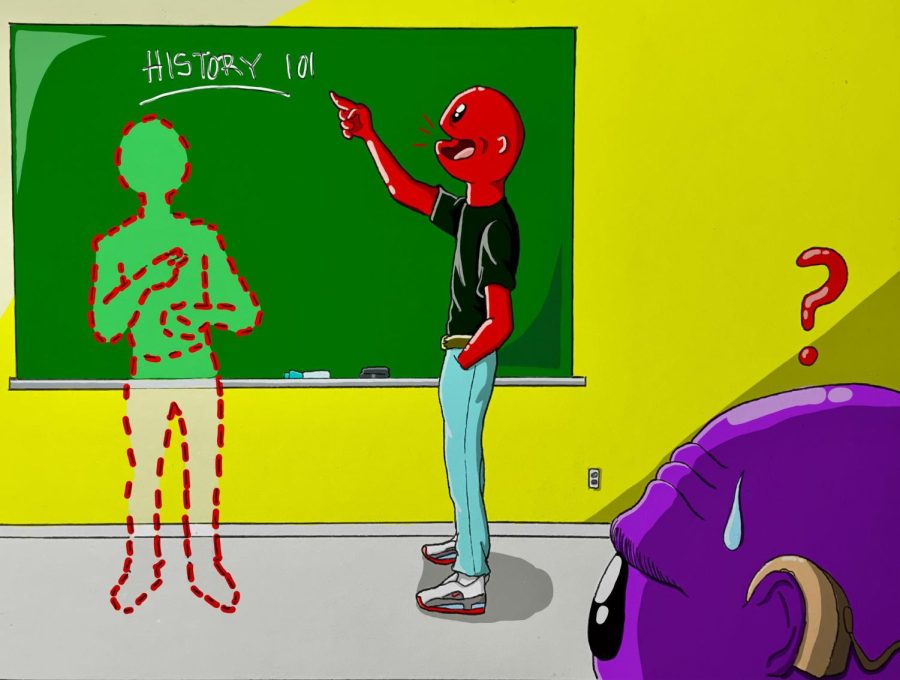ASL interpreter shortage strains NCOD
Illustration
November 4, 2022
The CSUN National Center on Deafness is experiencing difficulties keeping up with the high demand for American Sign Language interpreters for the fall 2022 semester.
CSUN is one of the top five universities for deaf and hard-of-hearing students, according to CollegeXpress. Today, there are over 150 deaf and hard-of-hearing students attending the college. The NCOD is at the core of the school’s DHH community, as it provides students access to services such as interpreters, real-time captioning, note taking, tutoring for classes and academic counseling.
NCOD Director Cathy McLeod has been working to ensure students receive communication services in the classroom. The NCOD has a roster of interpreters currently under employment, but it isn’t enough to keep up with such high demand. At the moment there are 56 interpreters and 25 captioners. This semester 59% of DHH students requested interpreters for their classes.
“We didn’t always have a shortage of interpreters and real-time captioners, but now we do,” McLeod said. “There were over 100 classes where we needed to place interpreters for students. It’s hard to cover them all. We have a roster of in-house interpreters, but it’s too many classes and not enough bodies to pick up the work.”
McLeod mentioned that due to the effects of COVID-19, some interpreters have had to move to other job opportunities in different areas, some have decided to move closer to family, while others simply do not feel comfortable working on campus.
“Due to COVID-19, some interpreters moved and found jobs in different locations, decided to be closer to family and others do not feel comfortable with working on campus,” McLeod said.
The NCOD has enlisted help from interpreters outside of California to help mitigate the effects of the shortage.
“We have a contract with an agency that has access to interpreters in seven states to help cover classes,” McLeod said.
However, some of these interpreters can only help remotely due to how far they are from CSUN. With many classes returning to in-person learning, not all students have benefited from this service.
Alexis Ong, a deaf transfer student from Fullerton College, has an all in-person class schedule. She has been struggling to adjust to the service that has been provided for her early in the semester.
“In one of my classes I need a laptop with my interpreters there on Zoom while the class is in person,” Ong said. “That is an issue for me. When I arrived in class, [the] Wi-Fi was constantly disconnecting and I missed a lot of information. I never experienced this before. When I register for in-person classes, most of my interpreters are in person.”
There are other options for DHH students. Instead of requesting interpreters, they could apply for real-time captioning on their accommodation services. To apply for accommodation services, DHH students must fill out a request at least one month before the semester starts, which will allow NCOD to find the best accommodation service for them and their classes.
Ashely Lee, a deaf senior majoring in environmental science, has used both an ASL interpreter and a real-time captionist while at CSUN. Over time, she has come to prefer an interpreter for her classes.
“At one point I would prefer a real-time captionist over an interpreter, but I want you to understand that was before I knew ASL,” Lee said. “With captionists, it is hard to work in groups during class. I have to read the tablet, it is difficult for them to move around, it is hard to know which person is talking at times. With an interpreter it is easier to move around and everything is smoother.”
McLeod said that she understands students’ frustration with the shortage, but is asking for patience.
“Our staff is working extremely hard to ensure we assign the best service for your preference and needs,” McLeod said. “It’s been very challenging this semester.”
NCOD academic adviser Matthew Reinig has noticed the NCOD’s progress in handling the shortage since the start of the semester. Reinig said that there were multiple classes still impacted by the shortage.
“We are continuously hiring more people to cover the remaining classes,” Reinig said. “We are down to one class [that needs] interpreting.”
